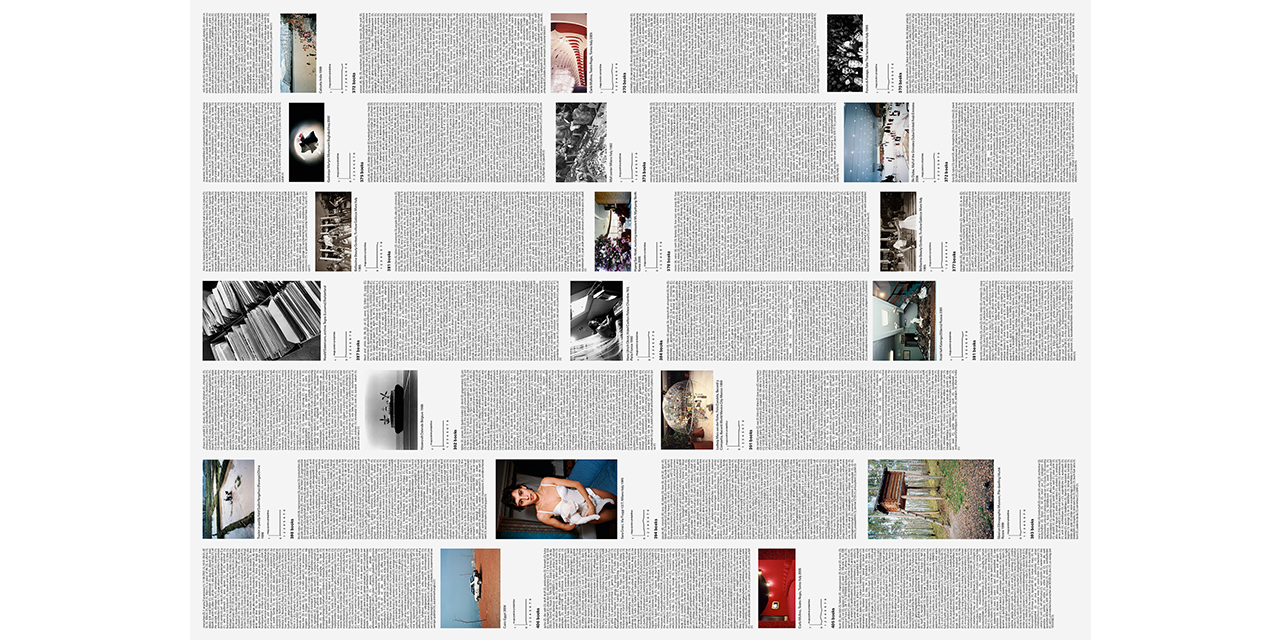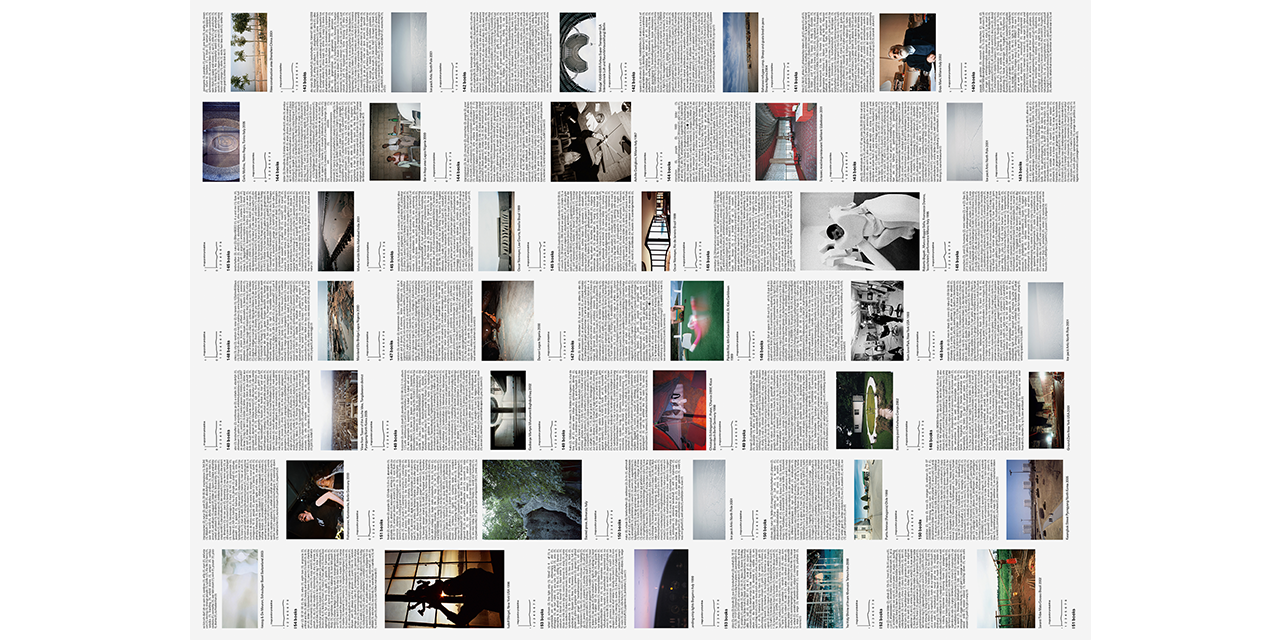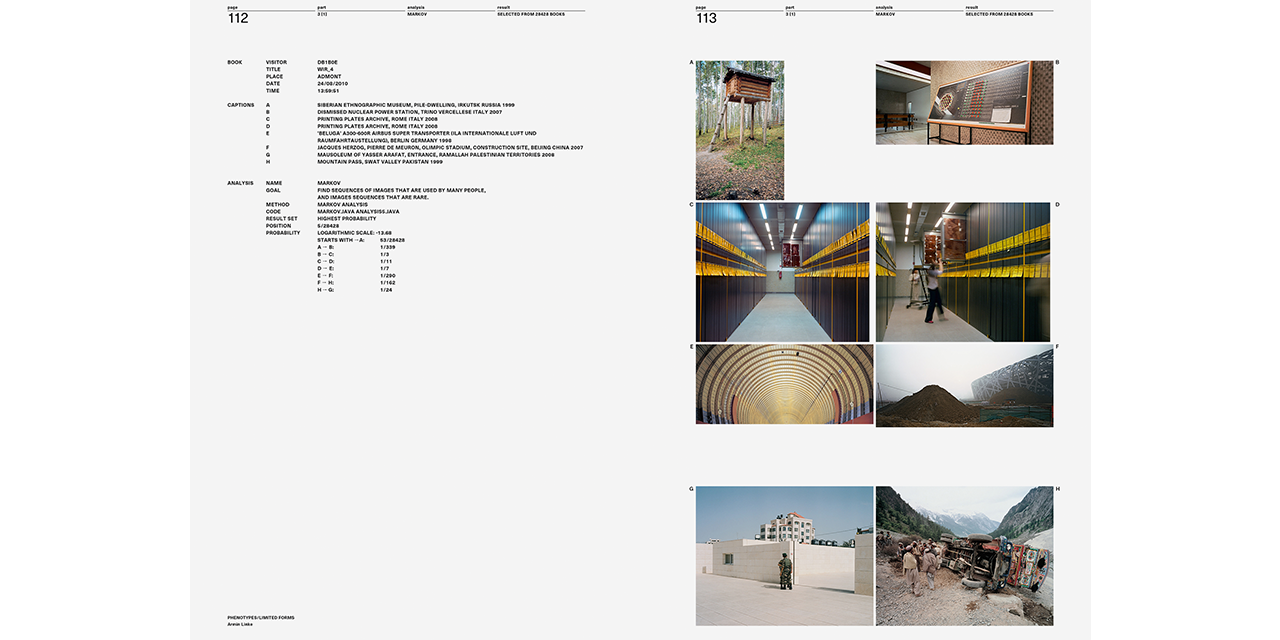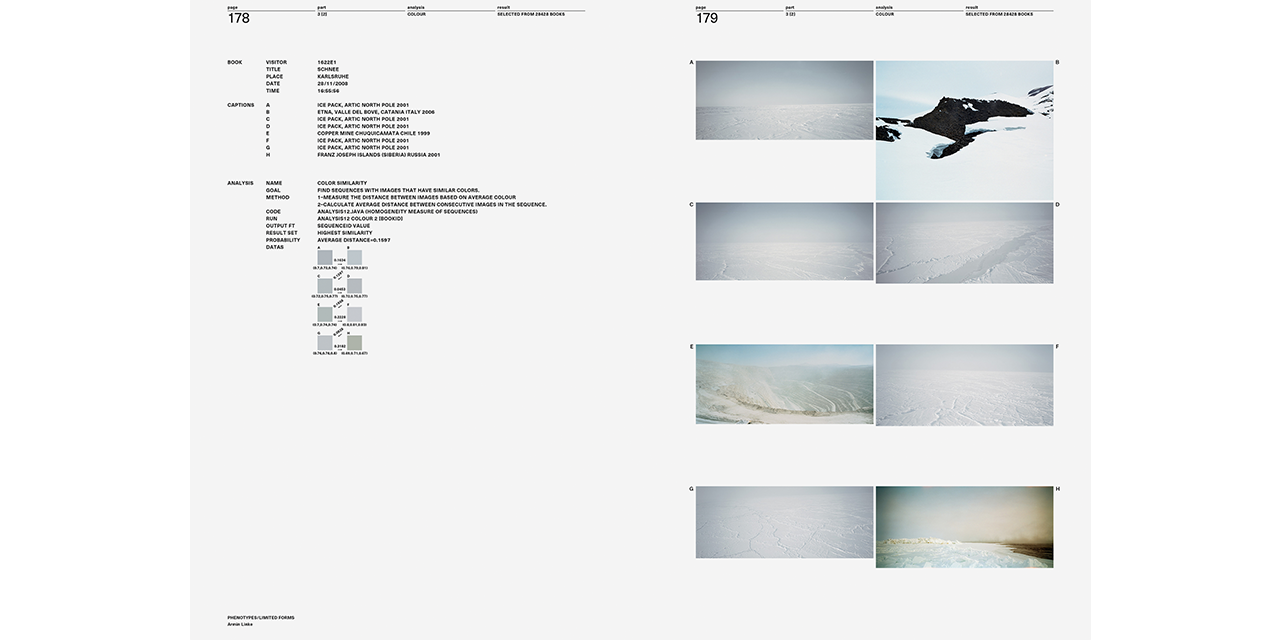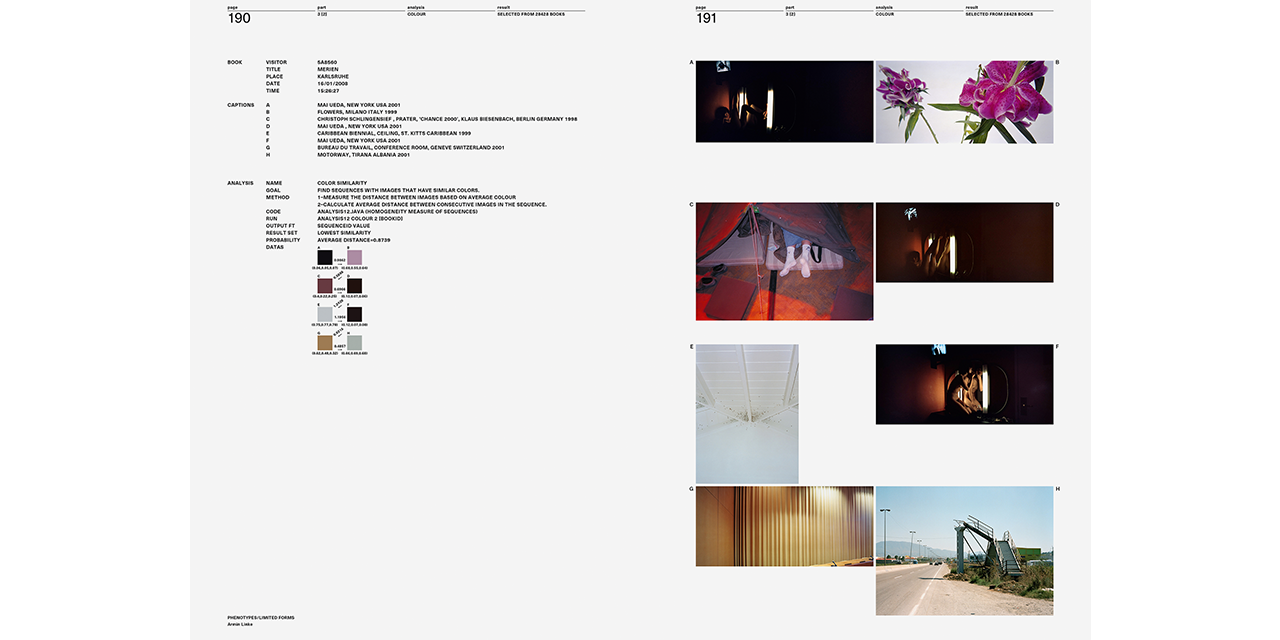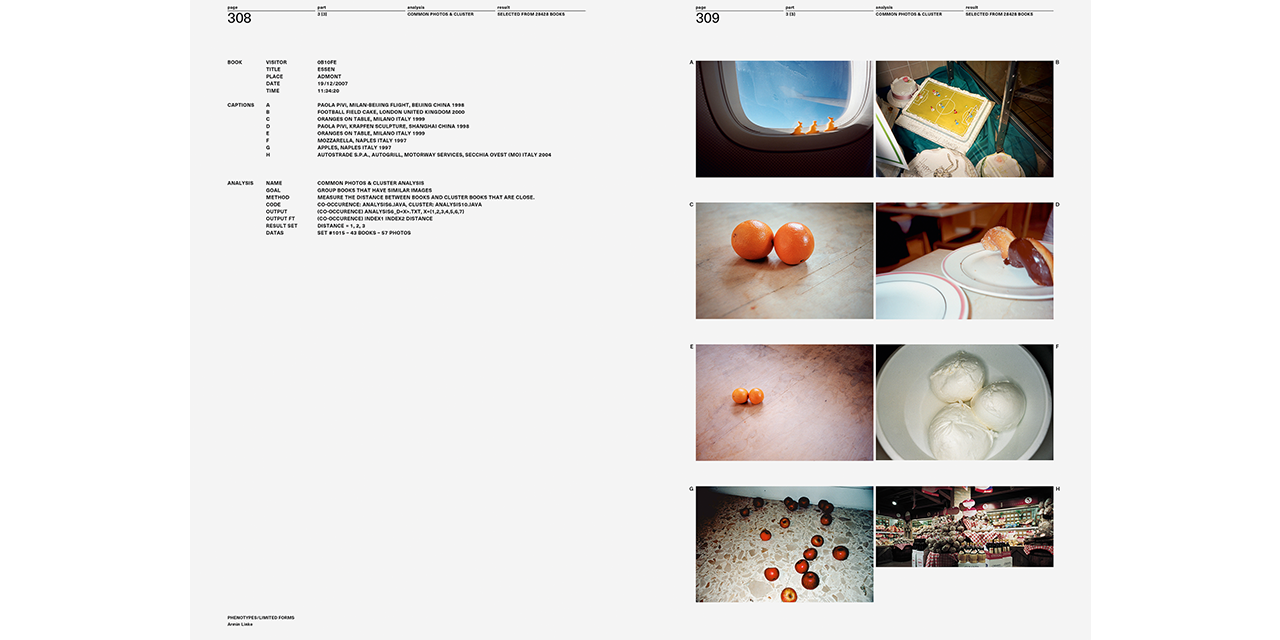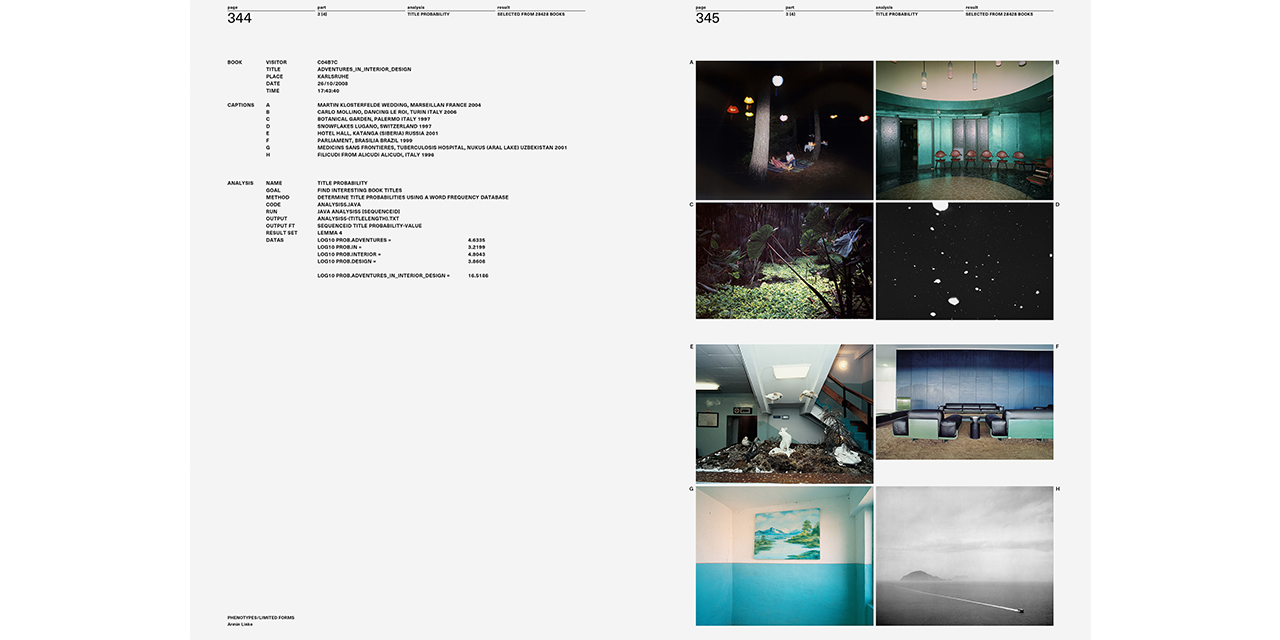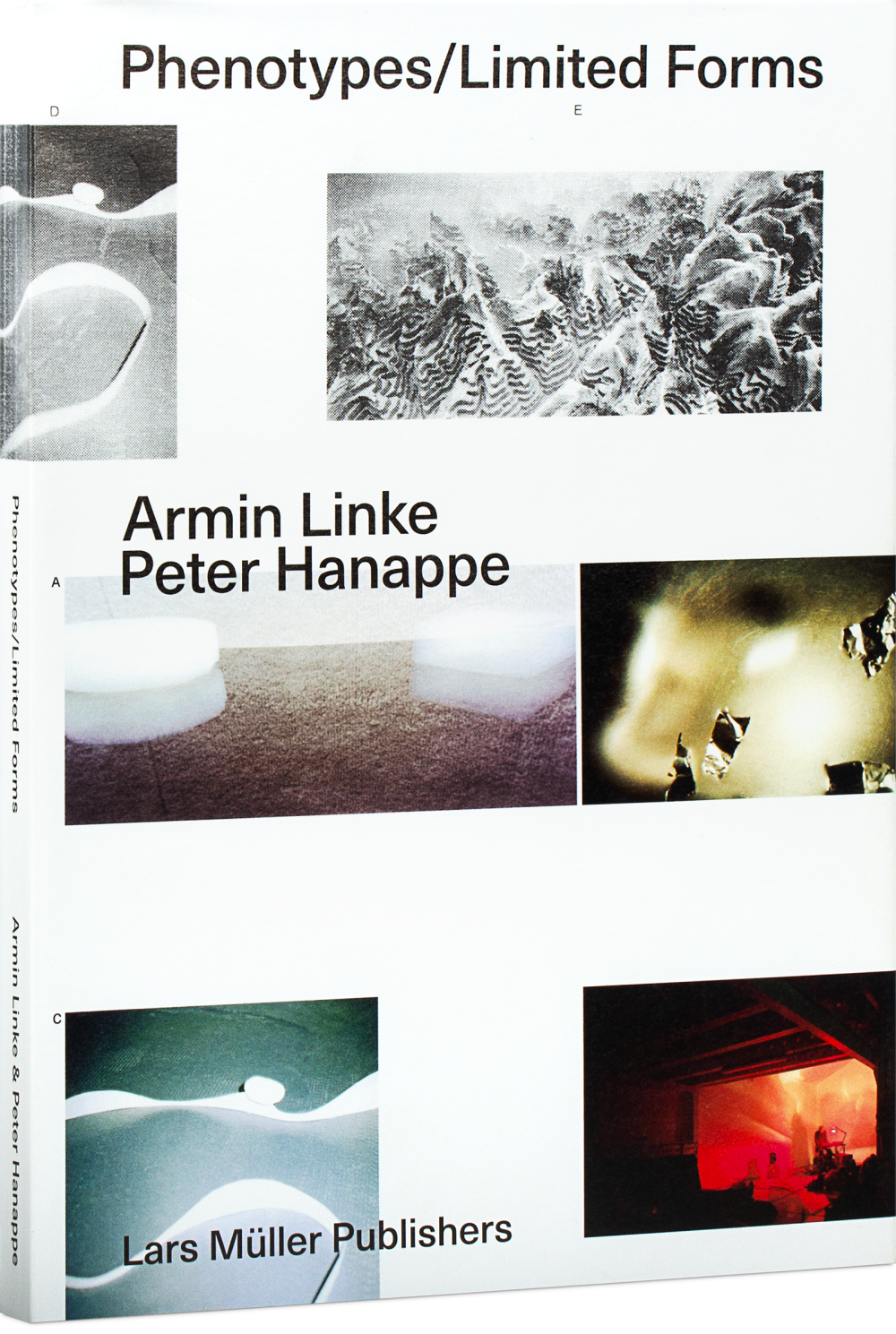
Phenotypes/Limited Forms
Contrary to the common “Don’t Touch – Just Look” approach, the exhibition Phenotypes/Limited Forms encourages visitors to pick their favorite subjects out of a total of several hundreds of displayed photographs, rearrange them, name their sequences and print them in the form of a fanfold. All exhibited images are part of the photographer Armin Linke’s archive.
This publication acts as an extension of the interactive exhibition and social experiment; it analyzes the 30.000 sequences selected by the public. Algorithms help understand the connection between the photographs, the number of times they were chosen by an individual visitor and how the visitors named their personal selection of images.
The format of Phenotypes/Limited Forms asks for the visitors’ contribution and only with the help of their involvement the work of art is whole. Essays by curators and art historians discuss the subject on a theoretical level while examining the aspects of participation and emancipation as well as the question of the autonomy of images.
Contrary to the common “Don’t Touch – Just Look” approach, the exhibition Phenotypes/Limited Forms encourages visitors to pick their favorite subjects out of a total of several hundreds of displayed photographs, rearrange them, name their sequences and print them in the form of a fanfold. All exhibited images are part of the photographer Armin Linke’s archive.
This publication acts as an extension of the interactive exhibition and social experiment; it analyzes the 30.000 sequences selected by the public. Algorithms help understand the connection between the photographs, the number of times they were chosen by an individual visitor and how the visitors named their personal selection of images.
The format of Phenotypes/Limited Forms asks for the visitors’ contribution and only with the help of their involvement the work of art is whole. Essays by curators and art historians discuss the subject on a theoretical level while examining the aspects of participation and emancipation as well as the question of the autonomy of images.
